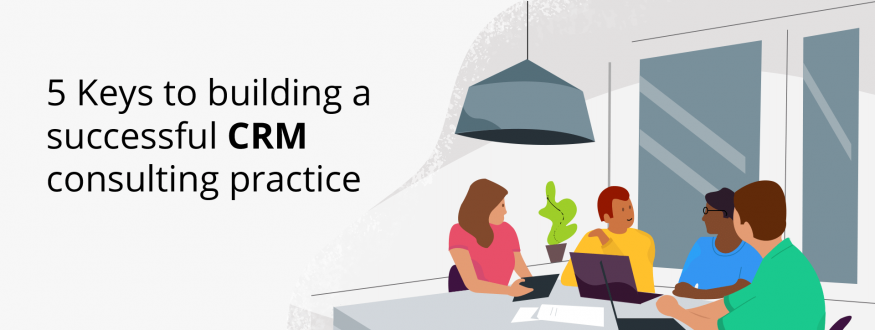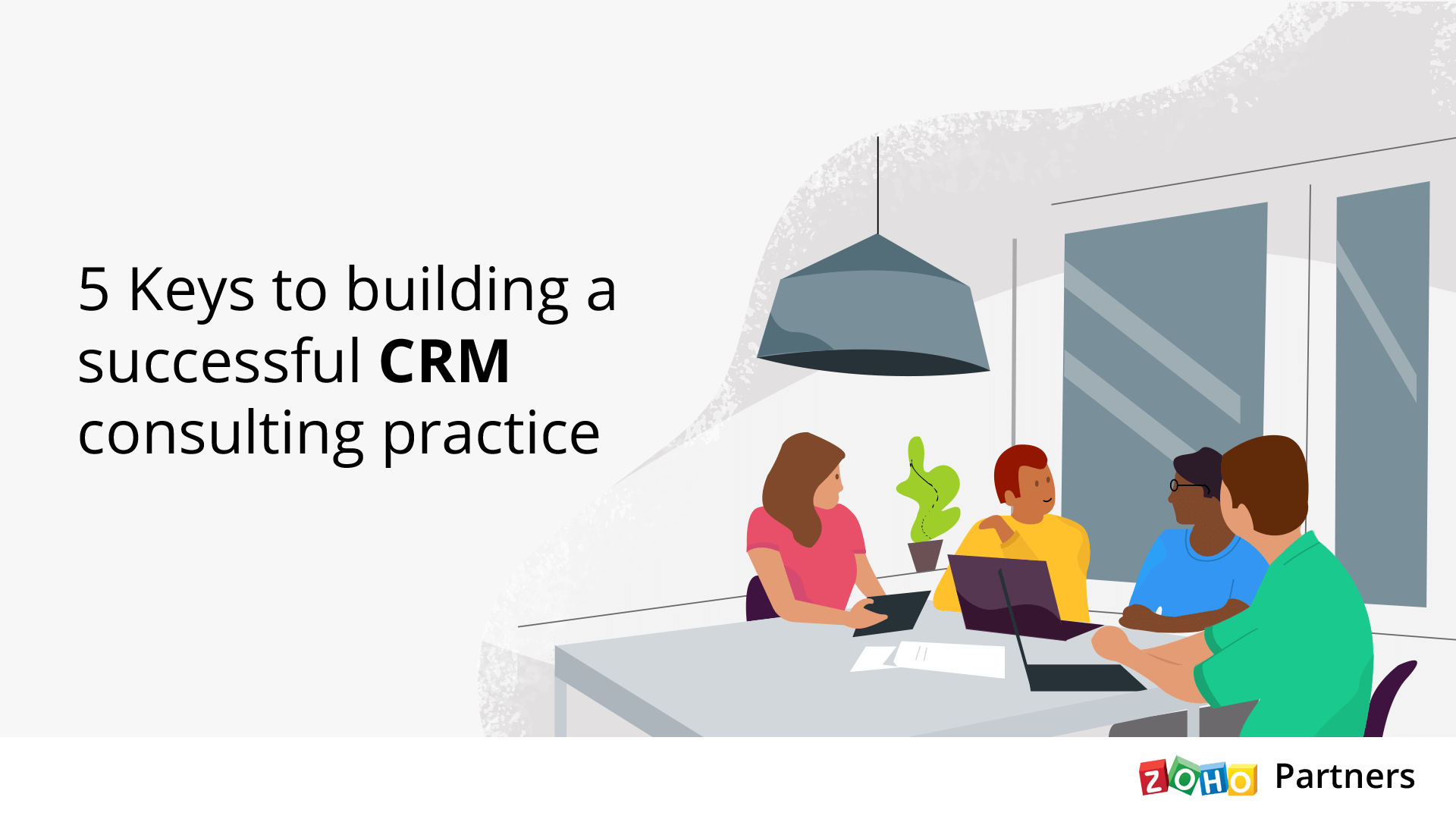The days are past when the word “CRM” meant bulky and expensive software that requires an entire team of experts working solely on installation and maintenance. With the advent of cloud technology and SaaS (Software as a Service), this is no longer the case.
Cloud computing is dramatically transforming the IT landscape. With more and more businesses moving to cloud technology, today’s CRM systems are technologically advanced and user-friendly. They offer endless opportunities for innovation and are designed to suit the needs of all types of businesses. The increasing growth of CRM in the enterprise solutions market has created many opportunities for professionals. The demand for contemporary CRM systems has led to a rising need for expert consultants in the cloud.
You may be wondering “How on earth can I build a successful CRM consulting practice?” Don’t worry, I’ve got you covered with four high-level factors to focus on. Let’s dive in.
1. Understand the industry vertical
One of the primary things to focus on, as a CRM consultant, is understanding the niche of your consulting business—whether based on industry, process, size, reach, etc. The convenience of the SaaS model has enabled many more small businesses to move to CRM in recent years. Today the small and medium business (SMB) segment is a significant customer base for CRM providers like Salesforce and Zoho. If you’re building a CRM consulting business, SMBs are a great market to target.
It’s important to develop an understanding of the structure, performance, and requirements of the SMB industry. A detailed analysis can be carried out to understand these objectives. It will not only help you identify gaps in the market where you may find your niche audience. For CRM consultants, industry knowledge is more important than technical expertise.
In fact, a survey conducted by Tech-aisle has revealed that 50 percent of successful CRM consultants and channel partners emphasize their industry expertise and knowledge during their interactions with clients. Demonstrating your knowledge of the SMB industry creates client confidence.
2. Get certified
Once you have the necessary industry expertise, it’s time to get your consulting business up and running! However, before you begin, don’t you think it is important to know more about the CRM software you’re going to represent? In today’s world, certifications build your credibility. Becoming certified gives consultants the product competency they need to work with vertical clients expertly. It also instills your client’s confidence in your team’s capabilities.
The Zoho CRM Certified Consultant program offers on-demand training in the product skills and knowledge you’ll need to deliver flawless CRM deployments. Our program provides a wealth of tools, training materials, and marketing resources. You can find these at the Zoho Partner Portal.
3. Learn the business processes
Cloud technology has facilitated the demand for easily customizable business solutions. Businesses want vertical applications that integrate well with their processes and suit their unique needs. As a CRM consultant, you should focus on understanding the business processes of your clients, right from the start. This will give you a more comprehensive picture of their overall objectives, structure, and operations.
Analyzing every aspect of your clients’ businesses will help you identify opportunities to improve customer service. You will be able to tailor the CRM software to fit their objectives and match against their specific business processes. Sometimes it may be deciding what features to ignore, for a specific client. Taking the time to understand their business processes and then designing the system in a scalable manner will lead to more successful implementation.
4. Focus on training and implementation
Your planning and efforts won’t bring about the desired results if you don’t give proper focus to training and implementation. It’s important to recognize the change in an organization that comes with a new CRM system. It’s also crucial to understand that change is usually followed by uncertainty. Uncertainty can create a sense of fear, and people might reject the system before it’s even fully implemented.
This risk can be mitigated by communicating with the users right from the planning stages. It is also beneficial to talk to a few users to understand their requirements and incorporate their ideas into the design of the system. Provide them with gradual role-based training to ease their fear and enable an understanding of the system before implementation. It’s important to set realistic expectations for clients that don’t over-promise outcomes.
It’s always best to implement CRM in phases. Implementing a new system in one go can create confusion among users and make them more resistant to it. The initial phase should contain the core functionalities needed to improve the business process. The next set of functions should be introduced after the users get accustomed to the initial phases.
5. Build relationships and gather feedback
So now you’ve got your certification, learned the industry and business processes, and implemented the best solution. However, your work doesn’t stop here; this is only the beginning!
It’s important to stay connected with users, even post-implementation. Gathering feedback and suggestions for changes in the system will allow continuous improvement. It will help you grow and evolve to meet changing needs.
The success of any consulting business depends entirely upon the relationships you build with your prospects and how you maintain them over the long term. In fact, you’re a consultant for a software that serves this very purpose! How great is that?
That’s all for today, folks!
With these factors in mind, you can kick-start a smooth and successful consulting practice in no time. And even better, partnering with Zoho can make this entire process seamless! Reach us here by filling out the contact form.

